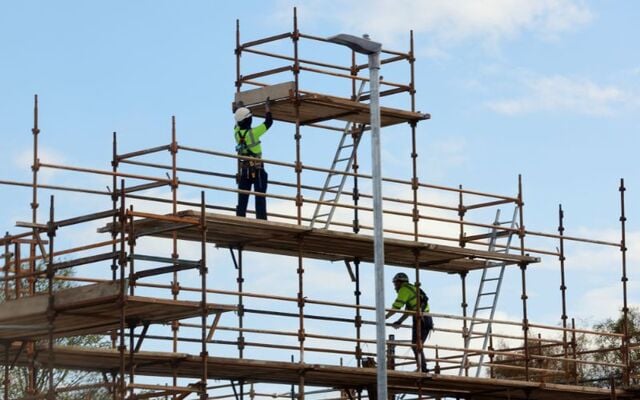Irish construction workers are one-third less productive than their international peers, partly because of poor uptake of modern methods of construction (MMC), a new report warns.
While the Government is now set on developing MMC as a core means of addressing the housing crisis, a new report from the Irish Fiscal Advisory Council (IFAC) today indicates that Irish construction workers lag behind their peers in productivity.
The report notes that a shortage of infrastructure is a “legacy” of the financial crisis.
It says: “Much of the capacity in the construction sector was lost thereafter.
“Many construction firms went bust, and many of the workers emigrated.
"Construction employment quickly fell from almost 240,000 to 85,000.
“Although employment has gradually recovered since then (up to 170,000 workers), investment in new construction methods has lagged behind other countries.
“As a result, output per hour worked is 33% lower than in peer countries.
“This partly reflects the low uptake of modern methods of construction, such as off-site manufacturing.
"This low level of investment may be due to the boom-bust nature of the construction sector in Ireland.
“When firms see how quickly things can change, they may be more reluctant to invest for the long term.”
The report says that in order for Ireland to catch up, it needs to do three things.
Firstly, it will need to sustain high levels of investment in key areas.
It states: “Some of the infrastructure deficits are in areas where the State is the biggest provider, for example healthcare.
“Government capital investment in healthcare is already at high levels.
“If this can be maintained in the coming years, this will help address infrastructure shortfalls in that area.”
Secondly, the Government will need to boost productivity in the construction sector if it is to make the need for additional workers less acute.
And thirdly, the planning and objection system for construction will need to be streamlined.
The report states: “Delays and uncertainty created by the system are impacting projects.
“The new Planning and Development Act may help but it is too soon to tell.
“Most investment is carried out by the private sector, so this needs to be facilitated as much as possible.
“This is particularly important now, as investment tends to be delayed during periods of uncertainty.”
The report also notes that Ireland’s infrastructure continues to lag behind other high-income European countries, citing research that shows Ireland’s infrastructure is about 25% behind that of our peers.
The report states: “Significant shortfalls in housing, health, transport, and electricity are evident.
"These challenges can only be addressed through sustained high levels of investment in these areas.
“Regardless of what happens to the international environment, these infrastructure deficits need to be addressed.
“If the economy weathers the changing environment, it will have high levels of employment and high demand for infrastructure.”
*This article was originally published on BusinessPlus.ie.




Comments